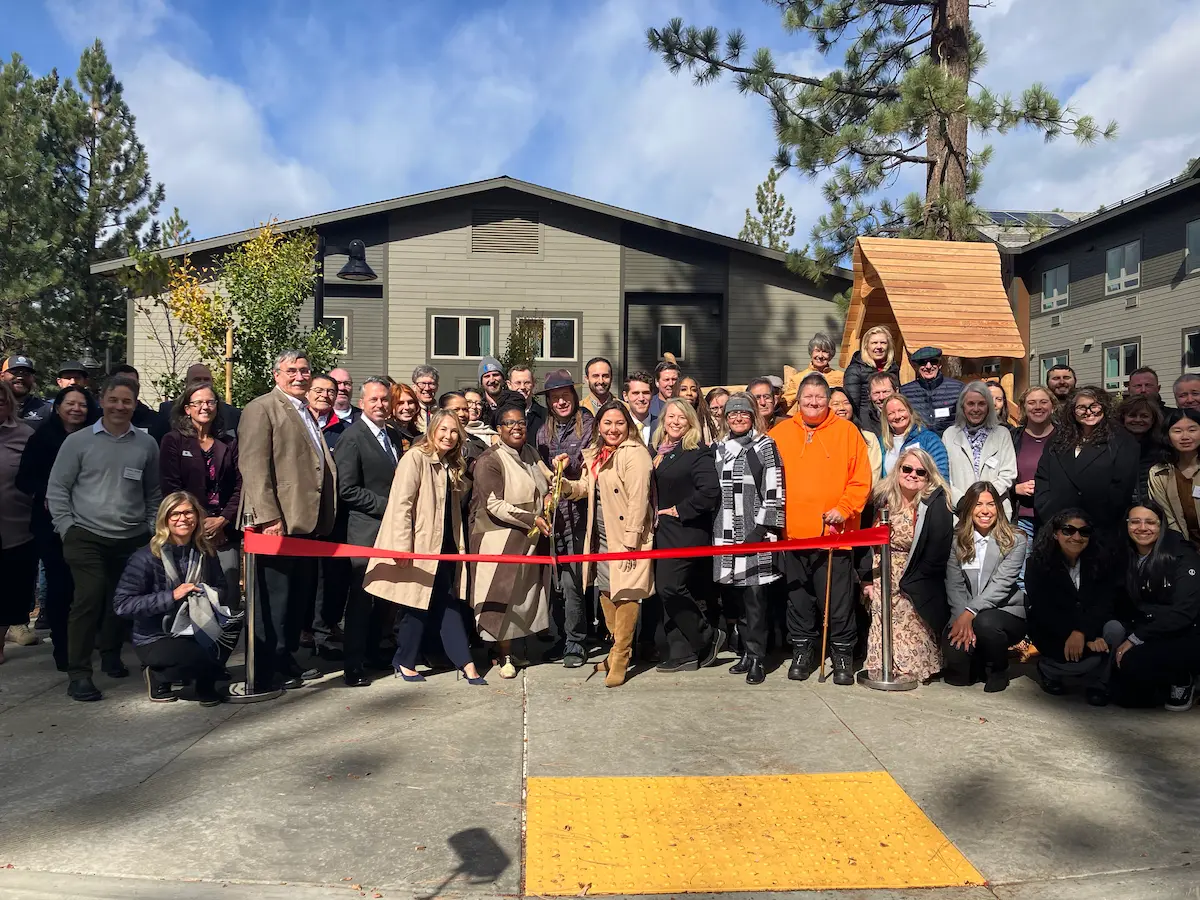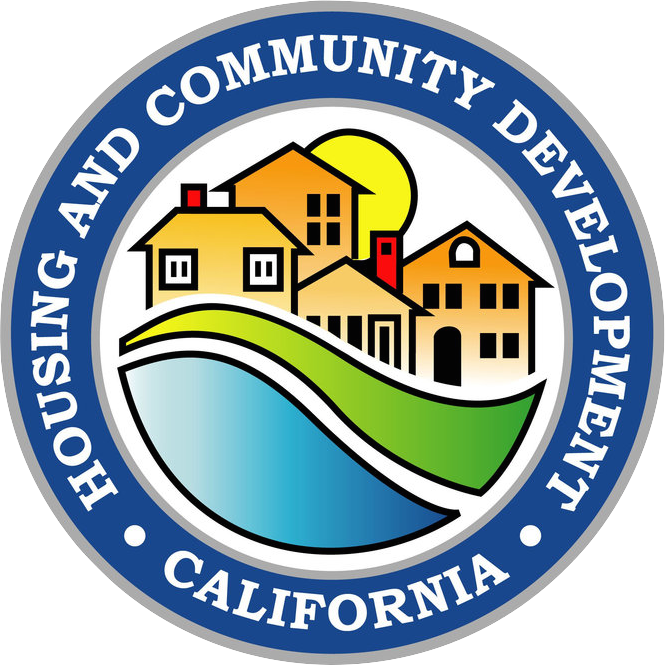New affordable housing community built on vacant state land in South Lake Tahoe opens for residents
Sugar Pine Village to provide 248 new affordable homes
October 17, 2024

Further utilizing an executive order to prioritize developing housing on excess state lands, Governor Gavin Newsom today announced that a new affordable housing project in South Lake Tahoe is opening 68 units to residents. Sugar Pine Village, which will eventually grow into a 248-unit community, transforms what was once vacant state-owned land into affordable housing for families and workers in the Tahoe region.
“Today we advance our strategy of transforming underutilized state properties into thriving affordable living communities for Californians. Sugar Pine Village opens the door to more affordable living in South Lake Tahoe, creating hundreds of new homes,” said Governor Newsom. “I congratulate and extend my thanks to Related California and the Saint Joseph Community Land Trust, as well as the state agencies who led the way by quickly transforming this state property into a place where many families can call home.”
Sugar Pine Village is the first of its kind as the largest affordable housing project in the history of South Lake Tahoe. Today marks the completion of the first stage of the project, creating 68 affordable units.
The project supports the local Tahoe workforce by offering affordable housing within the region and is projected to help reduce traffic in and out of the community — helping with transportation and the environment.
“These affordable housing projects are stand-out examples of the state working together to ensure that every Californian has a place to call home,” said Department of General Services Director Ana M. Lasso. “With Sugar Pine Village, DGS is proud to be part of creating a sustainable and inclusive community that reflects the values of South Lake Tahoe.”
Developed by Related California, the completed stage announced today includes 12 studios, 12 one-bedrooms, 23 two-bedrooms, and 21 three-bedroom units. All 248 units will be affordable to low-income families.
“This landmark affordable housing project brings us one step closer to providing housing for all residents of South Lake Tahoe,” said Government Operations Agency Secretary Amy Tong. “I’m proud of the state’s ongoing efforts in making affordable housing a priority as we work towards a brighter California for All.”
Sugar Pine Village is all-electric, constructed with modular units and incorporates environmentally friendly building practices. Amenities include parks, walking trails, and community gathering spaces.
"California's Excess Sites program is an extraordinary initiative that allows us to reimagine how underutilized state land can help us build affordable housing and healthier communities," said Business, Consumer Services and Housing Agency Secretary Tomiquia Moss. "Sugar Pine Village is an example of how state, regional and local partnerships can lead to new housing opportunities and can have a tremendous and positive impact on the community. The re-envisioning of this state-owned site into housing will help hundreds of working families struggling with housing security access dignified and affordable homes."
The next stage of the Sugar Pine Village project, which includes an additional 60 units, is already underway and is anticipated to open in October 2025.
“It’s inspiring to see Sugar Pine Village open its doors and provide urgently needed housing to the South Lake Tahoe community,” said Ann Silverberg, CEO of Related California’s NorCal Affordable and Northwest Divisions. “This is a major milestone for building high-quality housing efficiently and affordably, and we look forward to welcoming more residents into their new homes when additional phases are complete. Thank you to Governor Newsom, the State of California, the City of South Lake Tahoe, the Tahoe Regional Planning Agency, and our many other partners for their collaboration.”
This Tahoe development marked the second project to complete construction for the Excess Sites Program under Governor Newsom’s executive order. To date, 49 sites have been identified as suitable and available for housing statewide. There are currently 20 sites under development or having completed construction, with those sites yielding approximately 4,500 units. An additional 29 sites were identified as additional excess properties this year and will be offered to developers shortly for proposals.
Earlier this month, the state celebrated an award to transform a dated Department of Motor Vehicles (DMV) building in San Francisco into a modern DMV office paired with 372 new homes for low-income families.
How we got here
In 2019, Governor Newsom issued an executive order calling on HCD and DGS to address the state’s affordable housing crisis by identifying underutilized state-owned sites for the development of affordable housing, taking into account factors such as proximity to job centers, amenities, and public transit.
Creating affordable housing for all Californians
Since taking office, Governor Newsom has invested $40 billion in housing production and enacted dozens of CEQA reforms into law. The state has also invested more than $27 billion to help communities address homelessness.
In July 2024, Governor Newsom issued an executive order to support efforts to transform undeveloped and underutilized infill sites and buildings into housing. This order helps communities build thriving downtown cores and new housing near transportation hubs and job centers — creating more housing options for Californians while further aligning the state’s housing and climate goals.
In addition, Governor Newsom championed the creation of the Housing Accountability Unit at HCD to ensure cities and counties fulfill their legal responsibilities to plan and permit their fair share of housing.

